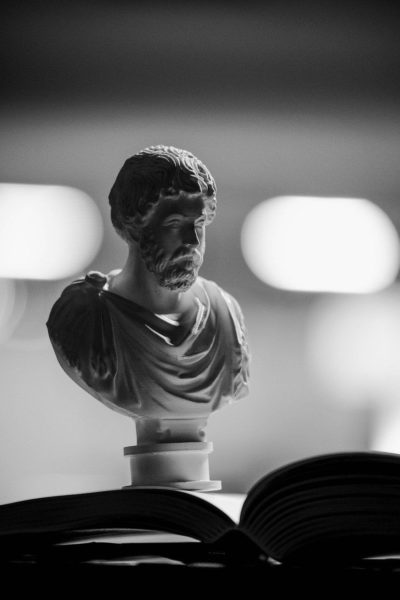Homer: The Master of Ancient Greek Poetry

Introduction
Homer, the legendary poet of ancient Greece, holds a significant place in the literary world. His works, the Iliad and the Odyssey, have captivated readers for centuries with their epic tales of heroism, adventure, and human emotions. In this article, we will delve into the life and works of Homer, exploring his influence on ancient Greek culture, his enduring legacy, and why he continues to be a source of fascination for art enthusiasts and collectors.
A Brief Overview of Homer

Homer, believed to have lived in the 8th century BCE, is often considered the greatest poet of antiquity. However, very little is known about his life, and many theories and speculations have emerged to fill in the gaps. Some believe that Homer was a real person while others argue that he was a mythical figure created to personify the collective genius of early Greek literature.
The Iliad and the Odyssey
Homer’s two epic poems, the Iliad and the Odyssey, are his most renowned works. The Iliad focuses on the Trojan War, specifically the wrath of Achilles, while the Odyssey tells the story of the Greek hero Odysseus’ long journey home after the war. These epic poems were not only entertaining for the ancient Greeks but also served as a source of moral and cultural guidance.
Historical Evolution of Homer
Over time, Homer’s poems underwent several transformations, both in terms of content and language. Originally, the poems were composed and transmitted orally, with each performance slightly different from the previous one. It wasn’t until much later that they were written down, which allowed for greater preservation and dissemination.
During the Hellenistic period, Homer’s texts experienced a surge in popularity, attracting the attention of scholars and philosophers. This led to the emergence of various schools of thought, each offering different interpretations and commentaries on the poems. These interpretations not only highlighted the literary genius of Homer but also provided new insights into ancient Greek society, religion, and values.
Homer as a Cultural Influence
Homer’s works had a profound impact on ancient Greek culture, influencing not only literature but also art, philosophy, and politics. His characters, such as Achilles and Odysseus, became archetypes for Greek heroes, embodying traits such as bravery, loyalty, and cunning. Artists, too, found inspiration in Homer’s poems, creating stunning visual representations of the epic stories.
The lasting influence of Homer can be seen in a multitude of artistic mediums, including painting, sculpture, and even architecture. Many ancient Greek vases feature scenes from the Iliad and the Odyssey, depicting key moments and characters. Additionally, various buildings and monuments, such as the Temple of Apollo at Delphi, were adorned with sculptures inspired by Homer’s tales.
Homer’s Legacy in the Modern World
Despite being written over two millennia ago, Homer’s works continue to resonate with contemporary audiences. His exploration of universal themes, such as love, war, and the human condition, transcends time and cultural boundaries. Countless translations and adaptations of the Iliad and the Odyssey have ensured that Homer’s stories remain accessible to a global audience.
Homer’s enduring legacy also extends to the realm of art collecting. Original copies of his works are incredibly rare, if not non-existent, making them highly sought-after by collectors and enthusiasts. The scarcity and historical significance of these ancient manuscripts contribute to their immense value in the art market. In recent years, there has been a surge of interest in acquiring artifacts related to the poet, further cementing his status as an integral part of art history.
Conclusion
Homer, with his extraordinary poetry and captivating narratives, stands as a monumental figure in ancient Greek literature. Through his works, he transports us to a world of gods and heroes, where we witness the triumphs and tragedies of humankind. Homer’s influence on art and culture cannot be overstated, and his enduring legacy continues to inspire and captivate generations. Whether through the written word or visual representations, Homer’s masterpieces will forever hold a cherished place in the hearts of art lovers and collectors alike.
Sources:
– Smith, Homer L. “The Art of the Homeric Epic.” The Classical Journal, vol. 61, no. 6, 1966, pp. 259-265.
– Shrimpton, Gareth. “Homer in the Art and Architecture of Archaic and Classical Greece.” The Classical Journal, vol. 80, no. 4, 1985, pp. 301-311.
– Nagy, Gregory. “The Epic Hero.” The Cambridge Guide to Greek Mythology, edited by Richard Buxton, Cambridge University Press, 2004, pp. 268-274.
FAQ
How has Homers influence manifested in art and culture?
What are Homers most famous works?
Who was Homer?
Flere Nyheder
Harmoni og inspiration med stjernetegn plakater
Introduction Homer, the legendary poet of ancient Greece, holds a significant place in the literary world. His works, the Iliad and the Odyssey, have captivated readers for centuries with their epic tales of heroism, adventure, and human emotions. In...
Jannik Hansen
07 juni 2024
Vælg de perfekte billedrammer til dit hjem
Introduction Homer, the legendary poet of ancient Greece, holds a significant place in the literary world. His works, the Iliad and the Odyssey, have captivated readers for centuries with their epic tales of heroism, adventure, and human emotions. In...
Jannik Hansen
04 marts 2024
Alt Om Rammer: Indram Dit Livs Vigtige Øjeblikke
Introduction Homer, the legendary poet of ancient Greece, holds a significant place in the literary world. His works, the Iliad and the Odyssey, have captivated readers for centuries with their epic tales of heroism, adventure, and human emotions. In...
Jannik Hansen
04 marts 2024
Professionel fotografi: Fang livets øjeblikke
Introduction Homer, the legendary poet of ancient Greece, holds a significant place in the literary world. His works, the Iliad and the Odyssey, have captivated readers for centuries with their epic tales of heroism, adventure, and human emotions. In...
Linnea Jensen
08 februar 2024











